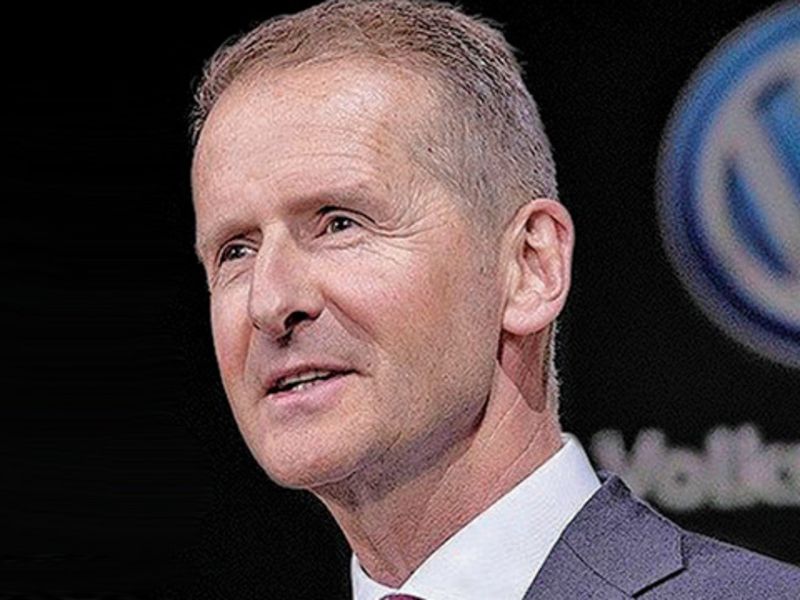
FRANKFURT — The drama that played out in recent weeks at the highest levels of Volkswagen Group can be explained with these two facts:
1. VW is in the midst of a generational shift toward a fully carbon-neutral business over the next 30 years.
2. The software-enabled, zero-emission vehicles favored by CEO Herbert Diess will have a dramatic effect on employment at the German behemoth.
In the end, the warring factions reached a tentative cease-fire over the future of the transformation plan and its embattled architect, Diess.
With no clear succession, investors feared his potential departure would paralyze the carmaker. That could have created a power vacuum that risked torpedoing the CEO’s ambitious strategy and enveloping the company in further internal strife.
Supervisory Board Chairman Hans Dieter Pötsch brokered the truce that strengthened the hand of his CEO, whose ambitions include finally achieving a profit for the core VW brand in the U.S. in 2021, six years after the diesel emissions scandal erupted.
The detente last week at a Supervisory Board meeting followed renewed clashes with labor leaders after the historic home plant in Wolfsburg was left last month once more without clear prospects for the zero-emission future. That was unacceptable to directors representing both VW’s home state of Lower Saxony and its trade unions.
Both stakeholders are already on edge. Utilizing the carmaker’s own internal figures, the Fraunhofer Institute estimated last week that employment in Volkswagen brand car plants in Germany could sink by 12 percent by 2029 because of the switch to electromobility. Worse, the group component plants would assemble parts that were 40 to 60 percent less labor-intensive. That means creative solutions and upskilling are required to manage the transformation, as layoffs have been ruled out.
The two patriarchs of the Porsche and Piëch families that control 53.3 percent of the voting shares demonstratively backed Diess, who was forced to yield control over the VW brand in June to a union favorite, Ralf Brandstätter.
“It’s of vital importance for us that Herbert Diess together with his new team of top executives continue to shape the Volkswagen Group in this key phase,” said Wolfgang Porsche and Hans Michel Piëch in a joint statement sent to Automotive News Europe. “He has our complete confidence.”
The cousins want to see more done to trim excess flab. According to Reuters, Diess now aims to slash the number of hours it takes to build a car in Wolfsburg to 10 to match Tesla CEO Elon Musk’s target for a plant near Berlin. That would be less than half the time it takes to assemble the factory’s two main models, the Golf and Tiguan.
Unions are furious, however, about plunging volume at the factory. It is on track to build just 500,000 light vehicles during this pandemic-racked year, down from roughly 700,000 in 2019 and a far cry from the 1 million promised to employee representatives more than two years ago.
The latest five-year planning round even earmarked nearly 50 percent more funds for a plant in Hanover, which will be converted to mainly build battery-electric vehicles. Wolfsburg, meanwhile, was told it must wait until next November before a decision is made on an electric model. Without the investment, it could fall further behind.
Instead, works council boss Bernd Osterloh seized the opportunity to extract fresh concessions.
At the meeting, he negotiated a prestigious next-generation electric vehicle for Wolfsburg that is expected to compete in the same segment as the Tesla Model S. In exchange, the labor leader signed off on the appointment of Audi’s hard-nosed head of controlling and accounting as group finance chief.
The incoming CFO, Arno Antlitz, is a former McKinsey consultant and a close ally of Diess with a sharp eye for corporate waste. He will be tasked with drafting a plan in coordination with unions by the end of March that will reduce the group’s fixed costs by 5 percent by 2023.
Another new appointee is Thomas Schmall, who won allies among the unions for his entrepreneurial restructuring of the group’s component operations. As head of the newly created “technology” portfolio, he will additionally be put in charge of licensing the company’s dedicated electric vehicle architectures for volume and premium models, MEB and PPE, to potential third parties, including EV partner Ford Motor Co.
Another of his duties will be managing the production joint ventures with battery cell partners Northvolt of Sweden and QuantumScape, a Stanford University spinoff that this month unveiled solid-state technology it claims is capable of improving EV range by up to 80 percent.
Markus Duesmann, responsible for R&D, also expanded his influence. In addition to overseeing, since his arrival in April, the Audi brand as well as the company’s crucial software subsidiary, CSO, he is snatching responsibility for Bentley from Porsche CEO Oliver Blume.
Diess was forced, however, to drop his ill-advised bid for an early contract extension and his divestment program.
That has been a core goal of management ever since the 2025 strategy plan was presented nearly five years ago. Audi’s motorcycle brand, Ducati, was one of the first candidates on the auction block, but talks never yielded anything concrete.
VW says directors now explicitly agreed that Lamborghini and Ducati will remain a part of the group, leaving only the disposal of Bugatti still on the table.
Analyst Arndt Ellinghorst of Bernstein Research dismissed that setback. He wrote: “It’s far more important that VW executes well on its BEV strategy while restructuring its legacy auto business.”